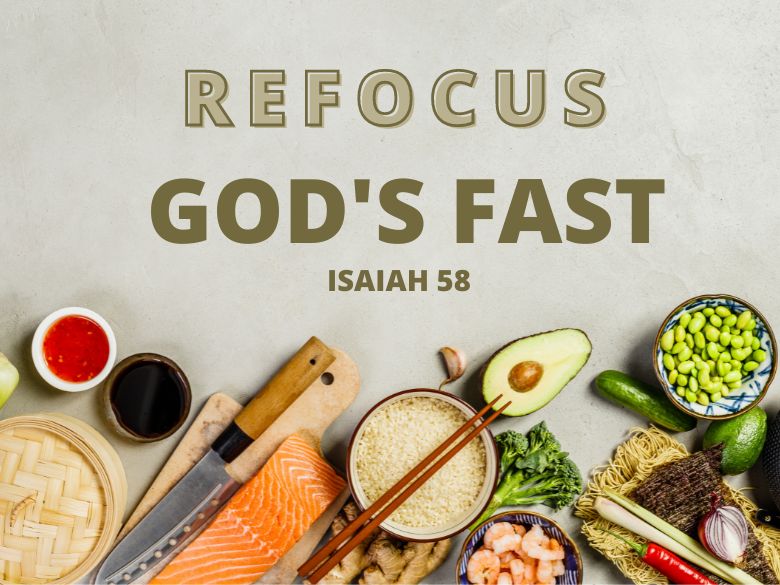
Introduction
Fasting is an ancient discipline practiced among major religions of the world. However, at the beginning of a New Year, fasting is a very common practice among the Christian faith—followers of Jesus Christ. It may have become a trend. Many Christian assemblies and congregants have become accustomed to starting the new year with their specific type of fast. The fast is implemented to achieve the desired results within the timeframe of the fast. Although the 21-day Daniel fast is most common, some leaders and ministries choose specific kinds of fast and include prayer points for the duration of their fast.
This article is a reminder that biblical fasting is a spiritual discipline that always centers on spiritual purposes and God’s requirements.
Biblical Examples of Fasting
From the Old Testament to the New Testament, people fasted for different reasons. For example, King David fasted as he mourned the death of his son, hoping God would heal him. In the book of Nehemiah, fasting was a sign of the Israelites’ mourning as they confessed their sin before the Lord (Nehemiah 9:1-3 NIV). In the book of Esther, the people fasted and mourned at the threat of being killed. Also, Queen Esther requested everyone fast for her as she prepared to go to king (Esther 4:15-16 NIV). Daniel fasted as he prayed and petition the Lord (Daniel 9:3 NIV). Jesus fasted forty days and nights (Matthew 4:1-3 NIV).
The Motives for Fasting
Although fasting is spiritual discipline and is an individual matter, the motives must align with biblical principles set by God. God’s Word is clear about what He expects and the type of fast that pleases Him.
To Isaiah, God says, “Cry aloud, do not hold back; lift up your voice like a trumpet, and declare to My people their transgression and to the house of Jacob their sins.” (Isaiah 58:1 AMP).
Like then, like now, no one wants to hear about what they are doing wrong. However, to those God has called to be His mouthpiece, must obey His instructions, and say whatever He commands. This will cause criticism, and you will be unpopular.
Isaiah and many other prophets in the Bible did not back down from speaking the truth—what God commanded. The one thing people do not realize is that whatever God says concerning His people is for their good.
God’s Perspective on Fasting
God gave His perspective and requirements for fasting to His prophet , Isaiah, in chapter fifty-eight. Below are the key points for consideration:
The superficiality of their relationship with God (Verses 1-2).
Although they were seeking Him daily, pretending to delight in knowing His ways, they were unrighteous and had turned away from God’s requirements as His chosen people. Reality? They were hypocrites! They had turned away from God, but delighted in His nearness. While they were against Him, they wanted Him to be for them. (Verses 1-2)
Their expectation despite their insincerity and hypocrisy (Verses 3a).
They questioned God’s non-responsiveness to their fasting… “Why have we fasted, and You do not recognize it? We have afflicted ourselves and You are not impressed. (Verse 3a). God did not respond to their fasting because it was for show; it was to please themselves. Their motive for fasting was wrong—it was tradition, pretense, not sincerity of heart. It was pleasurable, not grief for sinful behavior. There was no change in character and behavior.
God’s expectation and response to their question (Verses 3b-5).
Isaiah confronted their behavior and answered their question of why God did not respond to their fasting. There was no change in their behavior. They continued their unrighteous acts—they oppressed their servants. They abused one another by quarreling and fighting. If you expect God to hear and answer your prayers, there must be a heart change that aligns with God’s way of doing things. Fasting is NOT about looking the part.
God’s chosen reasons for fasting (Verses 6-7).
Isaiah poses God’s reasons for fasting in question form: “Is this not the fast that I have chosen: (Isaiah 58:6a NKJV)
-
Loose the bonds of wickedness. People are imprisoned spiritually and physically restrained because of injustice, oppressive systems. Fast to open the way and be released from the wickedness that holds people captive. (Self-included).
-
Undo the heavy burdens. Many are weighed down with the cares of life. Fast to set free from the yokes that have them enslaved mentally, emotionally, and spiritually.
-
Let the oppressed go free and break every yoke.
-
Feed the hungry, provide shelter to the homeless, and clothe the naked.
The rewards of God’s chosen fast (Verses 8-14)
God always rewards faithfulness and obedience to His commands. He makes it clear what will result from fasting His way and what He will do. When fasting for God’s reasons listed above (#1 through 4) these are the results:
-
Restoration (healing and wholeness) springs forth quickly.
-
Righteousness (justice) will lead to peace and prosperity.
-
God’s Presence as a rear guard that protects and defends.
-
Answered prayer when you call, and present help when you cry.
Jesus’ Instructions Regarding Fasting
Jesus gave instruction on the proper practice of fasting, which also speaks to motives. It is noteworthy that Jesus implies, that fasting will be practiced: “And when you fast, don’t make it obvious, as the hypocrites do, for they try to look miserable and disheveled, so people will admire them for their fasting. I tell you the truth, that is the only reward they will ever get. (Matthew 6:16 NLT).
Jesus also answered a question by John the Baptist’s disciples on fasting. They wanted to know why the Pharisees and John the Baptist’s disciples fasted, but His disciples did not. Here’s Jesus’ response:
And Jesus said to them, “Can the friends of the bridegroom mourn as long as the bridegroom is with them? But the days will come when the bridegroom will be taken away from them, and then they will fast. Matthew 9:15 NKJV
Jesus identified Himself as the Bridegroom. It was a new day—the kingdom of God was with present with them. While He was present with them, there was need for them to fast (fasting being a sign of mourning in the old order, Old Testament). However, after His departure and return to glory, fasting would be practiced, as well as necessary.
Here’s a quote from Richard J. Foster:
“There is no way to escape the force of Jesus’ words in this passage. He made it clear that he expected His disciples to fast after He was gone.”[1]
The Purpose of Fasting
The primary purpose for fasting is to be subject to the will of God and discipline ourselves to deny our flesh control. It is a spiritual discipline for spiritual reasons. Fasting should never be a trend for Christians. When annual fasting becomes a trend to satisfy the flesh and ego, but no spiritual discipline that causes transformation, it can easily become an idol.
A recommended book to read on fasting as a spiritual discipline is “Celebration of Discipline; The Path to Spiritual Growth” by Richard J. Foster
©2023, 2024 Queen E. Phillips, A Majestic Publication. All rights reserved.

















